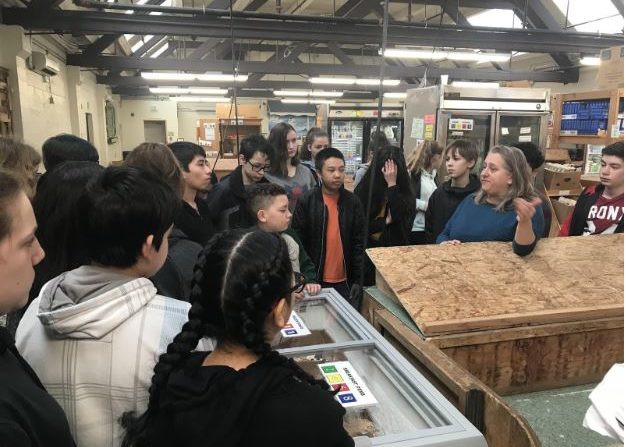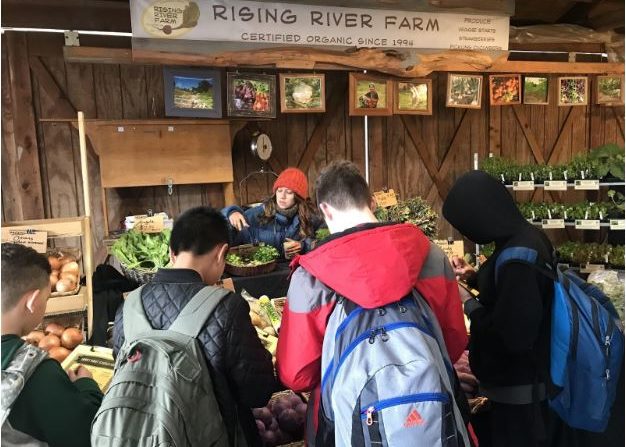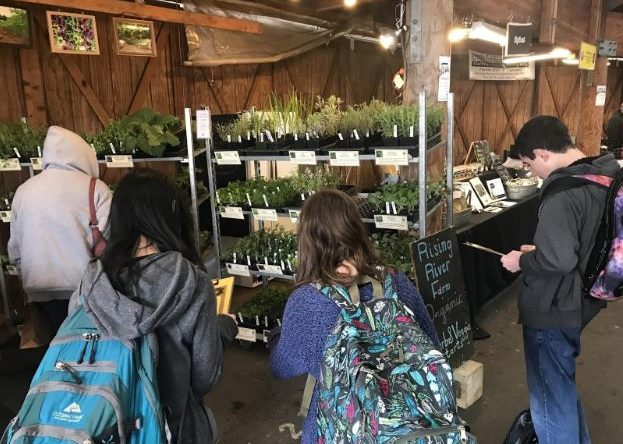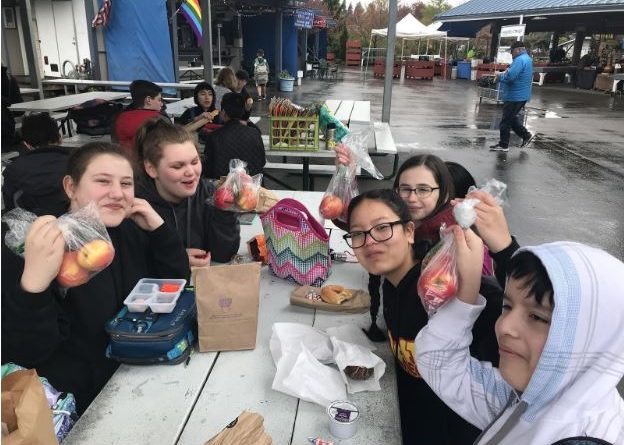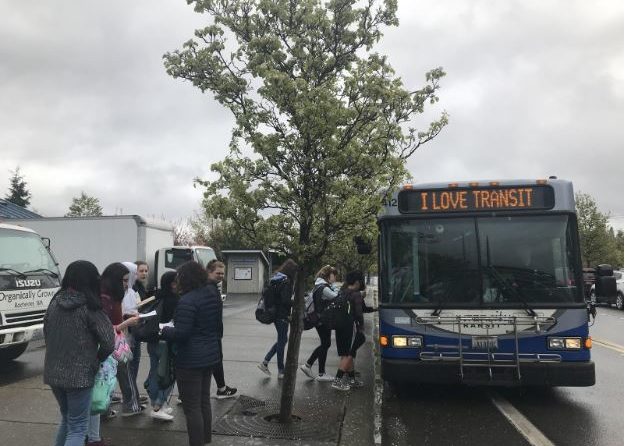The 2017-18 School Year is the 2nd year of our NOAA sponsored “Climate Resiliency Fellows” Program. Our aim is to “Create a dynamic community of informed teachers committed to involving their students in learning about and engaging in local climate change issues and climate resiliency projects.” Many thanks to all of our hard working teachers and students!
This spring, Salish Middle School teacher Emily Petersen took her class on a field trip in Olympia, WA to investigate ways in which we can reduce our carbon footprint. Her class visited the Thurston County Food Bank, the Olympia Farmer’s Market, and used mass transit to get back to school. Here is her account of the day:
“I thought the food was only for homeless people,” one student shared during a class visit from staff and volunteers from the Thurston County Food Bank. This misconception and others were replaced with new understandings as students researched local food resources in Thurston County in preparation of their upcoming field trip. In small groups, students presented some background information about the produce and services provided by local farms, the Olympia Farmers Market, and the Thurston County Food Bank.
Our first stop was the downtown Olympia Food Bank location. Students toured the space available for clients, and also received a behind the scenes look at how the food is organized, stored, and distributed by volunteers. Many students were eager to learn about volunteer opportunities and were excited to hear that they were old enough to help out on their own this summer.
Next up was the Farmers Market, only a short walk away. Students interviewed local farmers and took note of what vegetables were in season at the market. Many groups were able to meet workers from the farms that they had researched in the classroom! Students loved using the market coins to pick out carrots, potatoes, and even seeds to take home.
Our visit downtown had come to an end, but many students listed the ride home as a highlight of the trip. We coordinated a ride with the local InterCity Transit bus to take us back to school, and this was many students’ first trip on a city bus. They had a blast looking out the huge windows as we rode through downtown, and many students said they would definitely look into riding the bus again.
Our goal was to learn about local food resources in Thurston County, but by connecting the three experiences together we were able to generate new observations about how our individual choices have local and global impacts. Students noticed that the food bank helped to reduce food waste from large chain stores, they wondered why food at the farmers market was more expensive, and they were impressed with the hybrid-electric bus. I hope that students keep noticing and asking how their community works to make a difference.
